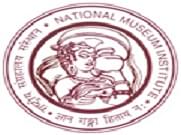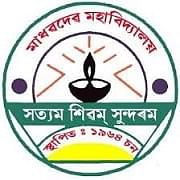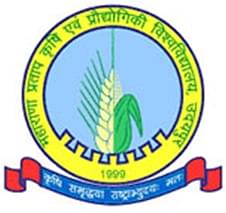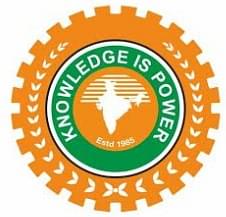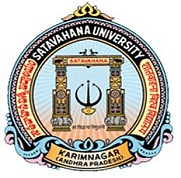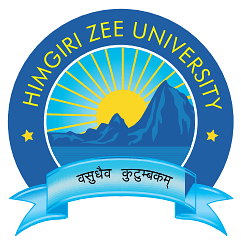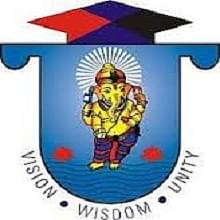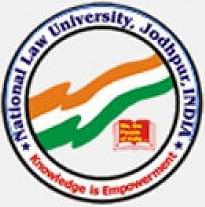Introduction about Ph. D in Library Science
A PhD in Library Science from best college
is an advanced academic program that focuses on research, theory, and advanced
practice in the field of library and information science. It prepares scholars
to become leaders in the profession, contributing to the advancement of
knowledge, innovation, and best practices in libraries and information
services.
Overview
Library Science encompasses the study of information
organization, retrieval, management, and dissemination within various contexts
such as libraries, archives, museums, and digital repositories. A PhD in
Library Science equips students with the skills to conduct original research,
develop theoretical frameworks, and contribute to the development of the
profession through scholarly inquiry.
Objectives
The primary
objectives of the program are to:
Advance Knowledge: Explore theoretical foundations and
emerging trends in library and information science through rigorous research
and scholarly inquiry.
Contribute to the
Profession: Generate new
knowledge, theories, and methodologies that inform best practices and
innovation in library and information services.
Prepare Future
Leaders: Train scholars to
assume leadership roles in academia, research institutions, libraries,
archives, and information organizations.
Promote Information
Access and Equity: Address
societal challenges related to information access, literacy, and social justice
within diverse communities.
Curriculum and Research Areas
The curriculum
typically includes core courses, electives, research seminars, and dissertation
work. Core areas of study might include:
Information
Organization and Retrieval:
Principles and methods for organizing, classifying, and retrieving information
resources in various formats.
Information
Behavior and User Studies:
Understanding how individuals seek, access, and use information, and designing
user-centered services and systems.
Digital Libraries
and Information Technologies:
Analysis of digital library systems, metadata standards, information
architecture, and digital preservation.
Information Policy
and Ethics: Examination of
legal, ethical, and policy issues related to information access, privacy,
intellectual property, and censorship.
Research Methods in
Library Science: Training
in qualitative and quantitative research methodologies, including survey
design, data analysis, and scholarly writing.
Research areas can
vary widely and may encompass topics such as:
Information
literacy and lifelong learning.
Collection
development and management.
Cultural heritage
preservation and digitization.
Information-seeking
behavior in specific user populations (e.g., children, older adults).
Library services
for underserved communities.
Evaluation of
library programs and services.
Fieldwork and Practical Experience
Students may have
opportunities for internships, practicums, or teaching assistantships to gain
practical experience in libraries, archives, or information organizations. This
hands-on experience allows students to apply theoretical concepts to real-world
settings and develop professional skills.
Career Opportunities
Graduates of this
program are prepared for diverse career paths in academia, research
institutions, libraries, archives, museums, government agencies, and private
organizations. Potential career roles include:
University faculty
and researchers.
Library directors
and administrators.
Information
architects and digital librarians.
Archivists and
curators.
Information policy
analysts and consultants.
Research scientists
in information technology companies.
What is admission process for Ph. D in Library
Science ?
The admission process 2024 PhD in Library Science varies depending on the institution and
specific program requirements. However, here is a general overview of the
typical steps involved:
1. Research Programs and Identify Potential
Advisors
Research
Institutions: Explore
universities and research institutions that offer PhD programs in Library
Science or related fields.
Faculty Profiles: Identify faculty members whose research
interests align with yours and whose expertise you would like to benefit from
during your doctoral studies.
2. Meet Academic Requirements
Educational
Background: Most programs
require applicants to have a master's degree in Library Science, Information
Science, or a related field. Some programs may consider applicants with
exceptional academic backgrounds or relevant professional experience.
Academic
Transcripts: Provide
official transcripts from all post-secondary institutions attended,
demonstrating a strong academic record.
3. Prepare Application Materials
Research Proposal: Develop a detailed research proposal
outlining your intended research topic, objectives, methodology, and
significance. This proposal should align with the research interests of
potential advisors and the program's focus.
Personal Statement: Write a personal statement explaining your
academic background, research interests, career goals, and why you are
interested in pursuing a PhD in Library Science at the specific institution.
Curriculum Vitae
(CV): Submit an updated CV
highlighting your academic achievements, research experience, publications,
presentations, and any relevant work or volunteer experience.
Letters of
Recommendation: Obtain
strong letters of recommendation from academic or professional references who
can speak to your research capabilities, academic achievements, and potential
for doctoral studies.
4. Standardized Tests (if required)
GRE/GMAT: Some programs may require standardized
test scores such as the GRE (Graduate Record Examination) or GMAT (Graduate
Management Admission Test). Check the specific requirements of each program.
5. Language Proficiency
English Proficiency
Tests: For non-native
English speakers, proof of English proficiency may be required through tests
like TOEFL (Test of English as a Foreign Language) or IELTS (International
English Language Testing System). Minimum scores may be specified by the
institution.
6. Submit Application
Online Application: Complete the online application form
provided by the institution. Ensure all required documents are uploaded or sent
as specified.
Application Fee: Pay any applicable application fees.
7. Interview (if required)
Interview Process: Some programs may require an interview as
part of the selection process. This could be conducted in person, over the
phone, or via video conferencing. The interview typically assesses your
research interests, academic background, and fit with the program.
8. Funding and Scholarships
Apply for Funding: Explore funding options such as
scholarships, grants, assistantships, or fellowships. Many PhD programs offer
funding packages that cover tuition and provide a stipend for living expenses.
9. Decision and Enrollment
Admission Decision: After the review process, the admissions
committee will notify you of their decision. If accepted, you will receive an
offer letter.
Acceptance and
Enrollment: Accept the
offer and complete any additional enrollment procedures required by the
institution.
What is eligibility for Ph. D in Library Science ?
Eligibility for PhD in Library Science may vary depending on the institution
and specific program guidelines. However, here are the general eligibility
criteria commonly observed:
1. Educational Background:
Master's Degree: Most programs require applicants to have a
master's degree in Library Science, Information Science, or a closely related
field. The degree should be from an accredited institution.
Relevant
Disciplines: In some cases,
applicants with a master's degree in a related field such as Information
Studies, Archives Management, or Digital Libraries may also be considered.
2. Academic Performance:
Strong Academic
Record: Applicants should
demonstrate a high level of academic achievement, typically with a minimum GPA
requirement set by the institution.
Transcripts: Submit official transcripts from all
post-secondary institutions attended to demonstrate academic performance.
3. Research Experience:
Research Skills: While not always mandatory, having
research experience or coursework in research methodologies can strengthen your
application. This includes experience conducting independent research, writing
research papers, or participating in research projects.
4. Letters of Recommendation:
References: Provide letters of recommendation from
academic or professional references who can speak to your research abilities,
academic performance, and potential for doctoral studies.
5. Language Proficiency:
English Proficiency: For international applicants or non-native
English speakers, proof of English proficiency may be required through
standardized tests such as TOEFL (Test of English as a Foreign Language) or
IELTS (International English Language Testing System). Institutions may have
minimum score requirements.
6. Statement of Purpose:
Personal Statement: Write a compelling statement of purpose or
personal statement that outlines your academic background, research interests,
career goals, and why you are interested in pursuing a PhD in Library Science
at the specific institution.
7. Research Proposal (if required):
Research Proposal: Some programs may require applicants to
submit a detailed research proposal outlining their intended research topic,
objectives, methodology, and significance. This proposal should align with the
research interests of potential advisors and the program's focus.
8. Standardized Tests (if required):
GRE/GMAT: Some programs may require standardized
test scores such as the GRE (Graduate Record Examination) or GMAT (Graduate
Management Admission Test). Check the specific requirements of each program.
9. Professional Experience (if applicable):
Work Experience: While not always necessary, relevant
professional experience in libraries, archives, or information centers may be
considered favorably. This can include work in roles such as librarian,
archivist, information specialist, or researcher.
10. Additional Requirements:
Some programs may
have additional requirements such as interviews, writing samples, or specific
coursework prerequisites. It's important to review the specific eligibility
criteria and application guidelines provided by each institution.
By meeting these
eligibility requirements and submitting a strong application package, you can
demonstrate your readiness for doctoral studies in Library Science and increase
your chances of admission to the program of your choice.
What is syllabus for Ph. D in Library Science ?
The syllabus for PhD in Library Science is designed to provide a comprehensive understanding of
theoretical frameworks, research methodologies, and advanced topics in library
and information science. The program typically includes a combination of core
courses, electives, research seminars, and dissertation work. Below is an
outline of the typical components and subjects that might be included in the
syllabus:
1. Core Courses:
These foundational
courses cover key concepts and theories in library science:
Foundations of
Library and Information Science: Overview of the history, theories, and principles of library science,
including the role of libraries in society and information professions.
Information
Organization and Retrieval:
Principles and methods for organizing, classifying, and retrieving information
resources in various formats, including cataloging, metadata standards, and
classification systems.
Information
Behavior and User Studies:
Understanding how individuals seek, access, and use information, and designing
user-centered services and systems based on user needs.
Digital Libraries
and Information Technologies:
Analysis of digital library systems, digitization processes, digital
preservation, and emerging technologies impacting library services.
Research Methods in
Library Science: Training
in qualitative and quantitative research methodologies, including survey
design, data analysis, and scholarly writing.
2. Elective Courses:
Electives allow
students to specialize in specific areas of interest or address
interdisciplinary topics:
Archives Management: Principles and practices of archival
management, appraisal, arrangement, description, and preservation of archival
materials.
Information Policy
and Ethics: Examination of
legal, ethical, and policy issues related to information access, intellectual
property, privacy, censorship, and freedom of information.
Information
Literacy and Instruction:
Design and delivery of information literacy programs, instruction methods,
assessment strategies, and educational technologies.
Collection
Development and Management:
Strategies for building and managing library collections, including selection,
acquisition, evaluation, and deselection of materials.
Health Informatics
and Medical Librarianship:
Specialized knowledge and skills for providing information services in
healthcare settings, including medical terminology, evidence-based practice,
and health information resources.
3. Research Seminars and Workshops:
Literature Review
and Research Design:
Techniques for conducting literature reviews, synthesizing research literature,
identifying research gaps, and formulating research questions.
Data Collection and
Analysis: Training in data
collection methods (e.g., surveys, interviews, observations) and statistical
analysis techniques for library and information science research.
Academic Writing
and Publishing: Skills for
writing research papers, dissertations, and academic articles, as well as
strategies for publishing in peer-reviewed journals and presenting research
findings at conferences.
4. Dissertation Research:
Proposal
Development: Formulation of
a research proposal outlining the research objectives, methodology, and
significance of the study.
Independent
Research: Conducting
original research under the supervision of a faculty advisor, typically
culminating in a doctoral dissertation.
Dissertation
Writing: Compilation and
presentation of research findings in a dissertation, followed by a defense
before an academic committee.
5. Interdisciplinary Collaboration and Conferences:
Collaborative
Projects: Participation in
interdisciplinary research projects with other students, departments, or
external organizations.
Conferences and
Workshops: Attendance and
presentation at national and international conferences and workshops to share
research findings, receive feedback, and network with peers and experts in the
field.





